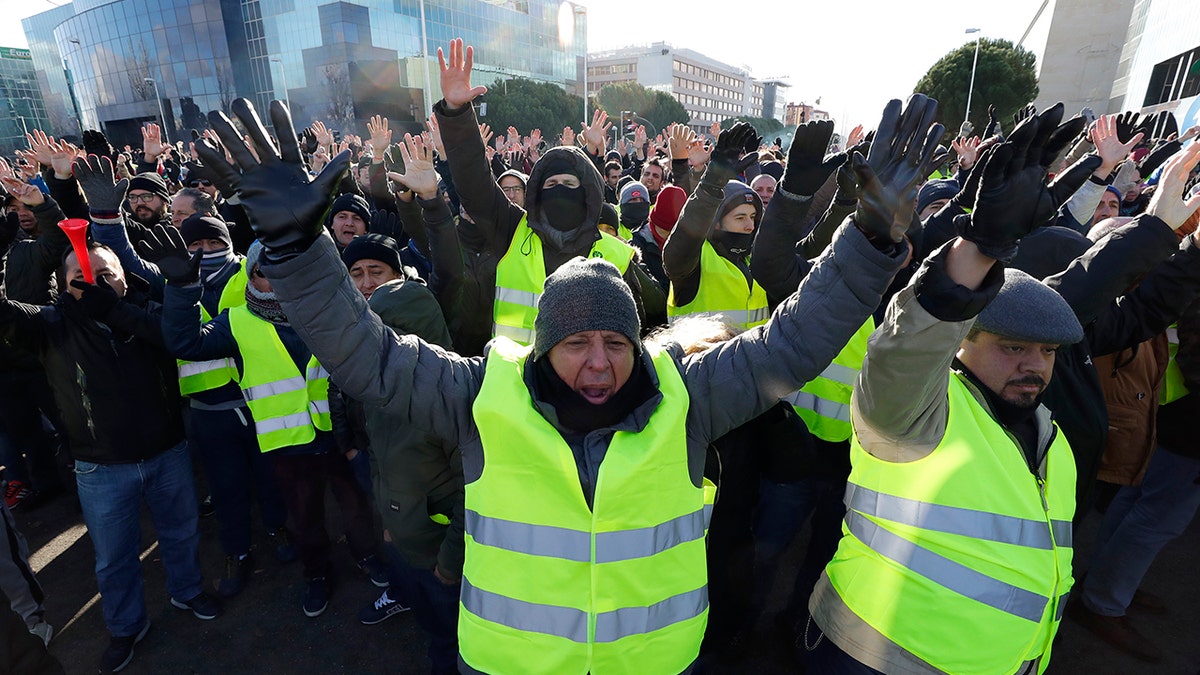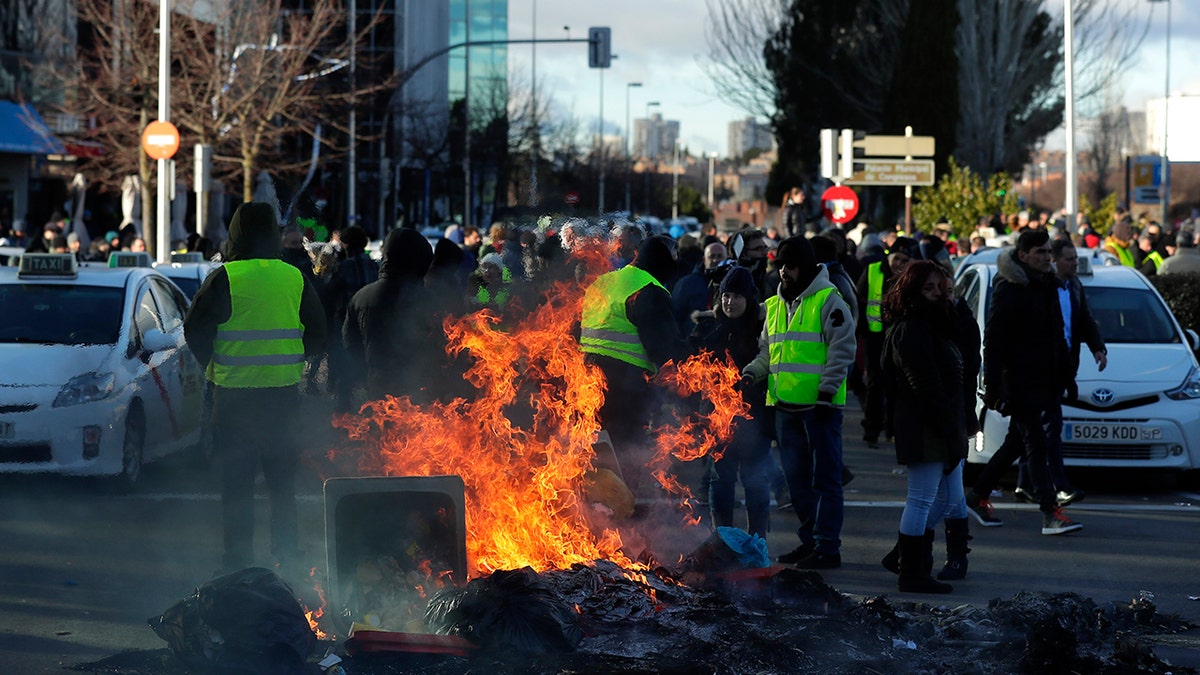
Striking Spanish taxi drivers demand more regulations for app-based ride-hailing services and are blocking access to a trade exhibition center in Madrid where a major tourism fair begins Wednesday. (AP Photo/Manu Fernandez)
Two taxi drivers protesting for tighter regulations for app-based ride-hailing services were arrested in Madrid Thursday amid second straight days of clashes with police.
The demonstrators clashed with riot police outside a trade exhibition center where a major tourism fair began Wednesday, only allowing a convoy carrying King Felipe VI and Queen Letizia of Spain to enter the center.
The drivers blocking a major highway near the Ifema convention center said they would continue their open-end strike until regional authorities in Madrid agree to a solution like the one that ended a similar weeklong strike in Barcelona on Wednesday.
Under the pressure of the strike, the Catalan regional government agreed to oblige to users of apps like Uber and Cabify to contract rides at least one hour in advance.
Madrid's conservative regional chief, Angel Garrido, has refused to take the same step, saying that Barcelona and Catalonia are "heading to the Middle Ages" with such a solution.

Striking Spanish taxi drivers demanding more regulations for app-based ride-hailing services are blocking access to a trade exhibition center in Madrid where a major tourism fair begins Wednesday (AP Photo/Manu Fernandez)
UBER AMBITIOUSLY EYES 2021 FOR FOOD-DELIVERY DRONES LAUNCH
Unauto VTC, the association representing drivers working mostly for Uber and Cabify, said 3,000 jobs are at stake in Barcelona.
It said the regional government in Catalonia "has yielded to the blackmail of the taxi drivers, who are again kidnapping the city of Barcelona and using violence to shield their monopoly."
CLICK HERE TO GET THE FOX NEWS APP
Previous taxi demonstrations have led to violence. A taxi driver was hospitalized on Tuesday with a serious head injury after he was run over by a car working for an app that he tried to stop.
The protests forced regulatory changes at the national level last year, but Spanish cab drivers consider those insufficient, arguing that their work is regulated as a public service in a way that their competitors' isn't.
The Associated Press contributed to this report.







































